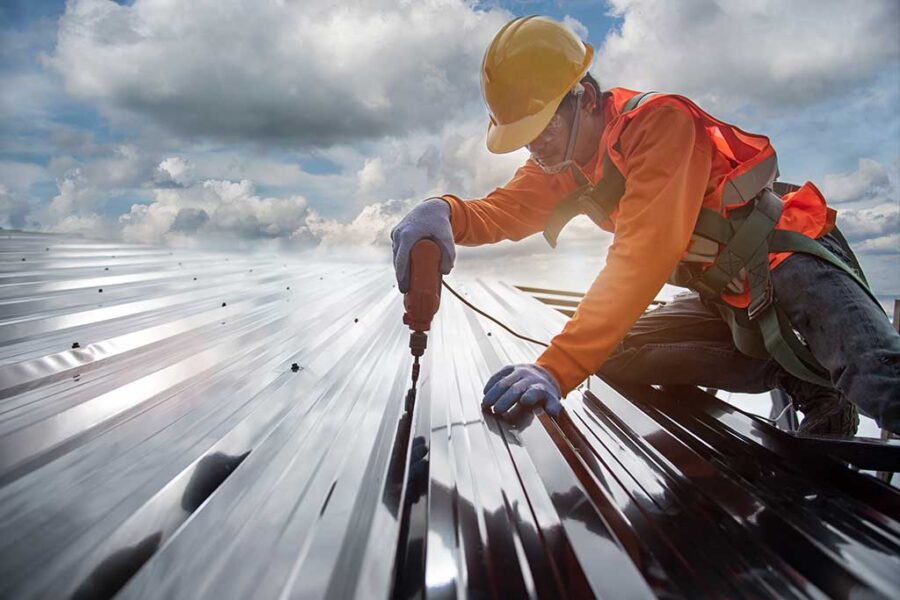
Industrial Roofing Repair: A Guide
Industrial roofs and residential roofs are not the same. Industrial buildings house all kinds of wares, some of which need precise temperature control or other specific accommodations. For industrial property, you want to know about different types of roofing material and industrial roofing repair tricks that can handle this important job.
Industrial roofs are large-scale commercial properties that require a level of protection beyond what domestic dwellings do. Moreover, these structures protect goods with various specifications for environmental conditions like ventilation, humidity levels etc., such as those required by warehouses holding sensitive materials. As such they must be built using more sturdy construction materials than houses might use.
Let’s take a look at what materials and types are deployed to have an industrial roof replacement alpharetta:
-
TPO
Thermoplastic polyolefin or TPO is a single-ply membrane that’s rolled out onto the roof’s surface. It comes in sheets 10 to 20 feet wide and it gets heat welded together with a welding robot on some flat roofs which can last for up to 15 years.
Tens of large rolls of white waterproof material called Thermoplastic Polyolefin (TPO) were being put into place by robotic arms amid an array of temporary lights beamed against the predawn sky at Ford Field yesterday morning as part of this summer’s $100 million renovation project.
-
Modified bitumen
Also known as torch-down roofing, modified bitumen is a single-ply membrane often used on flat roofs. This single-ply membrane consists of several layers of adhesive and fiberglass or polyester reinforcement with the top layer being reinforced rubber material that’s been heated to become pliable before it’s rolled onto the surface and covered in gravel for protection from UV rays. These roofs can be applied over many existing types such as concrete tiles, metal sheets/panels, or wood shingles. They are designed so these flexible materials will still remain intact under extreme heat conditions, unlike most other membranes which would either melt at high temperatures or crack if they were too brittle.
If you looking for industrial roofing at your home, it is also recommended to choose the best person for it, you must have copper nails at your home, you can also buy copper nails from here- fairwindfasteners.com
-
Built up roof
Built-up roofing, or BUR for short, has been around since the 1800’s and is a good option for buildings with flat roofs. It can be made up of multiple layers that consist of tar, asphalt materials like polyester fabric/fabric-like material combination mixed in gravel to keep it waterproof while also blocking UV rays from reaching through due its reflective nature which makes it low cost but high maintenance because if any part were damaged you would have to fix all parts instead of just one layer at once.
-
Metal Roofing
Metal roofing is often used on pitched industrial roofs. There are many options when it comes to metal roofing, the materials include aluminum, copper, tin, stainless steel, and stone-coated steel. Metal panels can be designed in a variety of patterns and colors today’s metal panel systems tend to last for long time periods with industry leading strong rust resistance properties that stand up against harsh weather conditions. Metal panels are attached either using an exposed fastener system or hidden fasteners these attachment methods hold stronger than those without visible nails.

